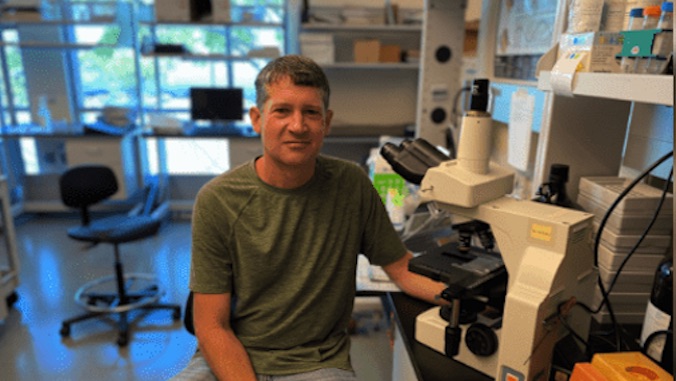
The University of Hawaiʻi at Mānoa John A. Burns School of Medicine (JABSOM) was awarded a $430,375 grant from the National Institutes of Health to embark on the exploration of selenoprotein I, a little-known protein that could have a major impact on our health. Genes make proteins. Rare mutations of the gene in humans lead to a form of hereditary spastic paraplegia (a group of inherited disorders) with symptoms including severe motor deficits, impaired myelination (the process that establishes connectivity in the brain) and epilepsy.
“The main objective of the grant is to investigate the role of selenoprotein I in neurodevelopment and neurodegenerative diseases,” said Principal Investigator Matthew Pitts, a cell and molecular biology researcher at JABSOM.
To put Pitts’s work into context, there are 25 selenoproteins encoded by the human genome, which are characterized by the presence of selenocysteine in their amino acid sequence. As a whole, selenoproteins play an essential role protecting against oxidative stress.
“What we found so far is that mice with selenoprotein I specifically knocked out in their central nervous system recapitulated key features of human patients including poor motor coordination, impaired growth and disrupted myelination,” Pitts said. “Their brains also seem shrunken and smaller, which has been reported in human patients.”
Possible impact on other neurodegenerative diseases
Since decreased levels of plasmalogen have also been linked to neurodegenerative diseases such as Alzheimer’s and Parkinson’s, what Pitts learns can profoundly impact the kūpuna population in Hawaiʻi and beyond.
“It could have that influence down the road,” he said. “I would say that what we’re looking at is more of a basic science question that’s not specific to any population, but more of an understanding of how the brain develops, how selenoprotein I influences things like myelination, neurodegeneration and so forth.”
The R21 grant allows Pitts to investigate selenoprotein I for the next two years and possibly longer. His most immediate goal is to publish his most recent findings, which show that JABSOM is on the cutting edge of neuroscience research.

